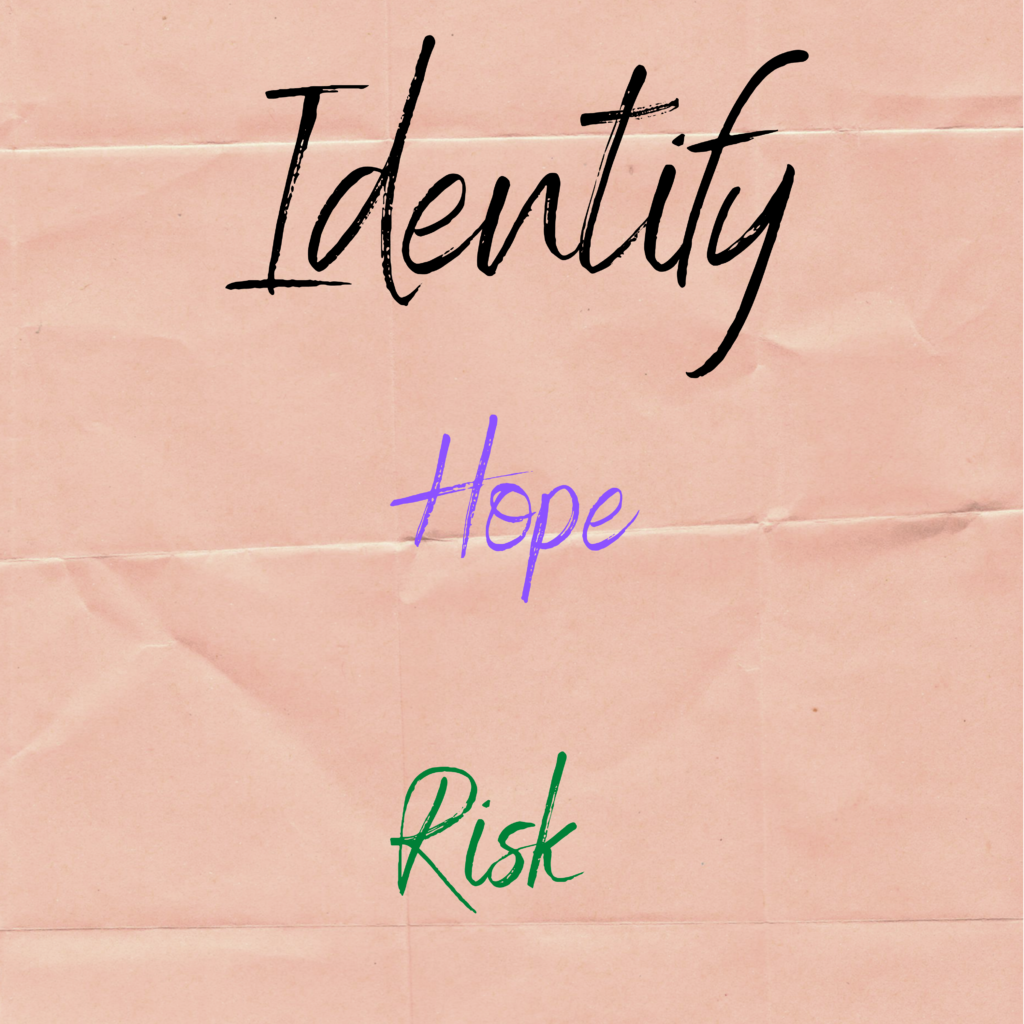‘There’s Fear in the Air’ Series
1. Identify the Fear of Trust
She told me that she thought he was crazy and naïve. She could not figure out what he was doing. Her counselor told her to fall backwards. He was behind her, so she just gathered he would not let her fall, so he was surprised when she fell backwards, not catching herself, and he caught her. No surprise to her, but a great surprise to him. He told her he thought she had trust issues and that she would not be able to trust him to catch her. He was right that she had trust issues, but she had a greater fear of not doing what she was told to do. She was in her 2nd year at her university. She did not have an obvious issue to work through because all her hurts were buried in mountains of lost memories. He was trying to search for the cause of whatever it was that was bothering her. she had a serious lack of ability socially to make friends and was extremely fearful. The only reason she went to this counselor was because some of her fellow students insisted that she need help and that they could not help her.
Symptoms of Having a Poor Trust Issue
Every time I am out driving or purchasing something, I see a reminder of how little trust there is in this world. People have rough luck. We all make poor decisions at times. There are consequences to being taken advantage of, of going through hard traumatic situations. But there is also a consequence of simply living life. Life tends to throw many hard balls at us everywhere we turn. Life is not kind, to anyone. That is why it can be easy to repair lost trust. That is why we have to hang on to hope and know we can do more than survive this life. That is why we need a life support. Some of the symptoms that prove there is little trust in your life:
- Being emotionally detached lends to not connecting with friends easily. When you are in relationships, others feel you are not close to them. *
- There is a lack of accountability in life. A person will do what they want to do when they want to and how they want to without telling anyone what they are about.
- Expecting to be hurt again and again keep relationships from being close. There is no feeling of safety, no comfortable feeling that you feel secure in.
- Suspicious about everything and everyone. That keeps others from feeling safe with you.
- When people view you as difficult to please they may decide it is too risky to get to know you.
- Lack of self-confidence with sabotage all your efforts at being successful.
- Trusting too easily is an example of being so discouraged that you cannot make good decisions on your own and you let someone else make your decisions for you, causing harm.
- Always being taken advantage of provides more reasons for your trust level to plummet.
- Negativity can take over your whole thought life. It can be difficult to think positive thoughts.
- Feelings of a past betrayal that you cannot forget, will put you on guard with other relationships that others can feel.
- Being over-protective to the extreme, so that you will hold everything so close that their freedom is compromised.
- Isolating self has many reasons. It can be a good thing for a while to work through complicated issues, or to recover from a debilitating illness. But if it is to keep from social issues, it can be something that can suffocate you.
- Avoiding commitment is laziness that can be changed. It is easier to not be committed and you need a reason to trust again to be open to future commitments.
- Unforgiving of smallest of offenses. People who are always bringing up past hurts and blaming and accusing others for problems that happen to them cannot forgive easily.
- Wary of all people. We should be wary of all people, but this trait goes beyond all normal caution and becomes an over reactive response.
- Feeling lonely, depressed to the degree that you have lost all hope of continuing in anything that would bring you success.
Lack of Trust Causes:
- Abuse
- Neglect
- Early childhood trauma
- Any traumatic experiences
- Accidents that leave someone vulnerable, disabled or non-functioning
- Loss of someone in death
- Chronic medical issues can cause mental, emotional, spiritual, cognitive and physical voids that compound trust issues.
2. Find Hope and Healing
“How can it be that 2 people who love so much, can understand so little?”
From a video series: Poldark
People do not communicate effectively. Here lies the problem. We do not work on communication. We make common excuses. It is not important enough, or others should already know what we are thinking. Thinking another person should know something because it is obvious to you is being short sighted.
It is never too late to start working on relationships. It may never be the same as it would have been had you understood each other sooner. It could be better, or it could be worse. But it is never too late.
Learn Ways to Work on Building Trust:
- Purpose to learn from your past. What positive benefits can you see from having to go through situations? Can you teach others something from your experience? Can you prevent the same situation to repeat itself? Why did those situations happen? What part of it was it your responsibility?
- Work on communication. Avoid letting your past control you. Realize that others may not be saying or doing what you think they are saying. Repeat what they say back to them, until you both see where you have misunderstood.
- Be honest, do not talk around the issue, and give your input in timely manner. Avoid venting or ‘blowing off steam’. Be in control of your words and behavior.
- Learn how to diffuse conflicts. Change your words, your actions and your emotions to reflect a conflict-calming behavior.
- Know that you do not have to hurt others because you are hurting. Thinking of how others are feeling benefits you in ways that will surprise you.
- Unravel any cliques, starve them out. Hold others accountable in a kind and effective way for their actions. Anger never works, for anyone.
3. Risk Being Hurt Again

- Find a support person that you connect with and who is willing to let you work through issues.
- Do not judge someone by their lack of growth.
- Give yourself room to make mistakes and learn from them. Be kind to yourself.
- Study the people you come in contact with for the purpose of understanding them even if you do not agree with them.
- Give up on controlling, it is massively ineffective.
- Let your family, friends and connections grow and make their own decisions. Let them fail. Failure is like a test to be learned from; it does not mean you are a failure.
- Let freedom ring in your heart. Take a deep breath and realize that as each day passes you will become more successful. Look for any small or large step forward to being the person you want to be.
- Be honest and not double-sided. Do not try to be a fake and be one person to some and another to others. People see right through that. Eventually you will fall again.
- Confront important and critical issues immediately but not abrasively. The more you let issues sit unsolved, the more you have a chance of misunderstanding.
*Source: https://www.goodtherapy.org/learn-about-therapy/issues/trust-issues; POLDARK video series
*Note: ‘There’s Fear in the Air’ Series was started on September 3, 2019. The subject prepared me for the current COVID season we are experiencing now.
